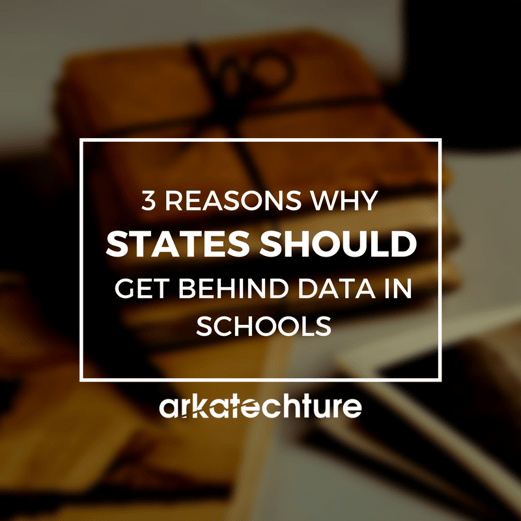3 Reasons Why States Should Get Behind Data in Schools
by Jessica Dugas, on February 2, 2017
The majority of public schools are way behind on technology, including data use for educators. Yet, giving teachers access to student data can help in incredible ways to close achievement gaps and increase student success.
If a school's number one priority is to help their students thrive, why haven't they adopted a more data-driven approach to learning?
Lack of state support is a key reason.
And it's hurting schools in a big way. Here are 3 reasons why states should get behind data use in public schools:

1. Schools Won't Adopt By Themselves
Sure, you may wonder, 'if it's so beneficial, why don't schools invest in data use themselves?'.
Due to lack of funding and strict policy, most schools won't adopt new processes or technologies, without the direct support of state government. This means in order for schools to provide data-driven education, states need to provide their districts with the funding and technology necessary to do so. This technology includes data warehouses and early warning indicator systems.
Check out how the State of Massachusetts is helping their students through data.
2. One Size Does Not Fit All
When it comes to education, no child learns the same. Yet, too many educators have a one-size-fits-all approach to teaching. It's not their fault, however. How can schools tailor to the individual needs of their students if they don't know how the students learn, where they flourish and struggle?
Giving teachers access to longitudinal data systems, can allow them to create personalized instruction to help all of their students thrive in academia.
3. Lower Dropout Rate By Improving Student Extracurriculars
Experiences outside of the classroom can relate greatly to a students academic success. By investing in data-driven afterschool programs, states can help lower their dropout rates, by providing a safe and structured environment for their youth.
When you use data, like attendance, behavior and grades, afterschool activities can be tailored to the individual student, allowing them to be engaged, and continue learning outside the classroom.
Want to see this in action? Check out how the city of Nashville uses data to improve afterschool programs for their students.
At Arkatechture, we love data so we may be a little bias, but we're not the only ones who believe data will improve education. Data Quality Campaign, the nation's leading voice on education data policy and use, has created a list of "10 Essential Elements of Statewide Longitudinal Data Systems" as a road map for educational data deployment.
If states want to continue to improve the quality of education provided to their students, they need to get behind data use in their school systems.



